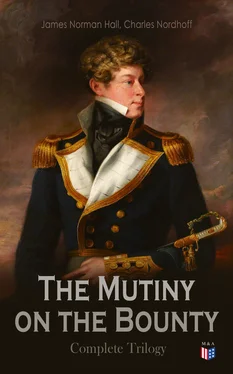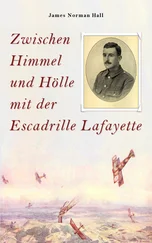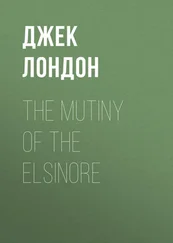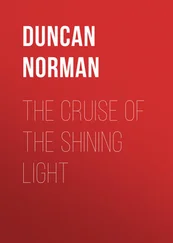Shortly after the arrival of the Bounty, Mr. Bligh had ordered a large tent pitched near the landing place, and Nelson and his assistant, a young gardener named Brown, were now established on shore, with seven men to help them gather and pot the breadfruit plants.
This tree cannot be propagated from seeds, since it produces none. Mr. Nelson informed me that in his opinion the breadfruit had been cultivated and improved from time immemorial, until—as in the case of the banana—seeds had been entirely eliminated from the fruit. It seems to thrive best when tended by man, and in the neighbourhood of his dwellings. When well grown, the breadfruit tree sends out lateral roots of great length, within a foot or two of the surface of the ground. Should an Indian desire a young tree to plant elsewhere, he has only to dig down and cut one of these roots, which, when separated from the parent tree, immediately sends up a vigorous young plant. When the shoot has reached the height of a man, it is ready to be transplanted, which is done by first cutting it back to a height of about a yard, and then digging down to cut off a small section of the root. Planted in suitable soil and watered from time to time, not one in a hundred of the young trees will fail to grow.
Nelson took long walks daily, scouring the districts of Mahina and Pare for young plants already well grown. The chiefs had ordered their subjects to give Nelson all he asked for, as a present to be sent to King George in return for the gifts the Bounty had brought from England.
The Bounty’s people who remained on board seemed to have forgotten for the time being their captain’s severities and the hardships of our long voyage. Discipline was relaxed; the men were allowed to go frequently on shore; and except for the surgeon every man of them had his Indian taio, and nearly every one his Indian lass. Tahiti was in those days a veritable paradise to the seaman—one of the richest islands in the world, with a mild and wholesome climate, abounding in every variety of delicious food, and inhabited by a race of gentle and hospitable barbarians. The humblest A. B. in the forecastle might enter any house on shore, assured of a welcome. And as regards the possibilities of dissipation, to which seamen are given in every port, the island could only be described as a Mohammedan paradise.
When I had been about a fortnight at my taio’s house I was agreeably surprised one morning to receive a visit from some of my shipmates, who came around from Matavai Bay in a double canoe. She was paddled by a dozen or more Indians, and three white men sat in the stern. My host had gone aboard the Bounty that day to dine with Bligh, and I stood on the beach as the canoe approached, with Hina, Maimiti, and Hina’s husband, a young chief named Tuatau. As the canoe rose on a wave I saw that the two white men facing me were Christian and Peckover, and a moment later I was amazed to see Old Bacchus on the thwart aft of them. A wave reared up behind the little vessel, the Indians dashed their paddles into the water, and the canoe swept forward and ran far up the beach.
The surgeon sprang over the gunwale and came stumping up to greet me, his wooden leg sinking deep into the sand. I had on only a girdle of the native cloth, and my shoulders were burned brown by the sun.
“Well, Byam,” said Bacchus as he shook my hand, “damn if I didn’t think you an Indian at first! Time I was going ashore, I thought, and where should I go if not to pay you a visit, my lad! So I bottled off a dozen of Teneriffe wine.” He turned to the gunner, who stood by the canoe. “Hey, Peckover,” he called solicitously, “tell them to be easy with that hamper—should any of the bottles be broken, it would mean another trip to the ship.”
Christian gave me a handshake, with a glint of amusement in his eyes, and we waited while the surgeon and Peckover superintended the unloading of a large hamper of wine. Presently a native came staggering up the beach with it, and I introduced my shipmates to my Indian friends. Hina and her husband led the way to the house, and we followed, Maimiti walking with Christian and me. I had liked Christian from the moment when I first set eyes on him, but it was not until we reached Tahiti that I came to know him well. He was a stalwart, handsome man, and more than once, during the short walk to the house, I saw young Maimiti give him a sidelong glance.
When we were seated on mats on Hitihiti’s cool verandah, Old Bacchus motioned the men to set down the hamper of wine. Still panting from the exertion of his walk, he fumbled for his snuffbox, pulled up his sleeve, laid a train of snuff on his polished forearm, and sniffed it up in a twinkling. Then, after a violent sneeze or two and a flourish of his enormous handkerchief, he reached into his coat tails and produced a corkscrew.
He and Peckover were soon well under way on a morning’s carouse, and Tuatau loth to leave them while the wine held out, so Christian, Maimiti, Hina, and I walked away up the beach, leaving the preparations of our dinner to Hitihiti’s numerous cooks. The morning was warm and calm, and we were glad to walk in the shade of the tall ironwood trees that fringed the sands. A river little larger than an English brook flowed into the sea about a mile east of the house, ending in a clear deep pool close to the beach. Gnarled old hibiscus trees arched together overhead, and the sun, filtering through their foliage, cast changing patterns of light and shade on the still water. The two girls retreated into the underbrush and soon stepped out clad in light girdles of glazed native cloth, which is nearly waterproof. No women in the world are more modest than the ladies of Tahiti, but they bare their breasts as innocently as an Englishwoman shows her face. Standing beside me on the bank, clad in a native kilt which showed his own stalwart figure to the best advantage, Christian glanced up at them and caught his breath.
“My God, Byam!” he said in a low voice.
Slenderly and strongly made, in the first bloom of young womanhood, and with her magnificent dark hair unbound, Maimiti made a picture worth traveling far to behold. She stood for a moment with a hand on the elder woman’s shoulder, and then, gathering her kilt about her, she ran nimbly up a gnarled limb that overhung the deep water. Poising herself for an instant high above the pool, she sprang into the water with a merry shout, and I saw her swimming with slow easy strokes along the bottom, two fathoms deep. Christian, a capital swimmer, went in head first, and Hina followed him with a great splash. For an hour or more we frolicked in the pool, startling shoals of small speckled fish like trout, and making the cool green tunnel overhead echo with laughter.
The Indians of Tahiti rarely bathe in the sea except when a great surf is running. At such times the more daring among the men and women delight in a sport they call horue—swimming out among the great breakers with a light board about a fathom long, and choosing their moment to come speeding in, a quarter of a mile or more, on the crest of a high feathering sea. Their daily bathing is done in the clear cool streams which flow down from the mountains everywhere, and though they bathe twice, and often three times each day, they look forward to the next bath as though it were the first in a month. Men, women, and children bathe together with a great hubbub of shouting and merriment, for this is the social hour of their day, when friends are met, courtships carried on, and gossip and news exchanged.
After our bath we dried ourselves in the sun, while the girls combed out their hair with combs of bamboo, curiously carved. Christian was a gentleman, and very far from a rake, though of a warm and susceptible temperament. He lagged behind with young Maimiti while we walked back to the house, and once, turning my head by chance, I saw that the two were walking hand in hand. They made a handsome couple—the young English seaman and the Indian girl. The kindly fate which veils the future from us gave me no inkling of what lay in store for these two—destined to face together, hand in hand as I saw them now, long wanderings and suffering, and tragedy. Maimiti cast down her eyes, while a blush suffused her clear olive cheeks with crimson, and strove gently to release her hand; but Christian held her fast, smiling at me.
Читать дальше











